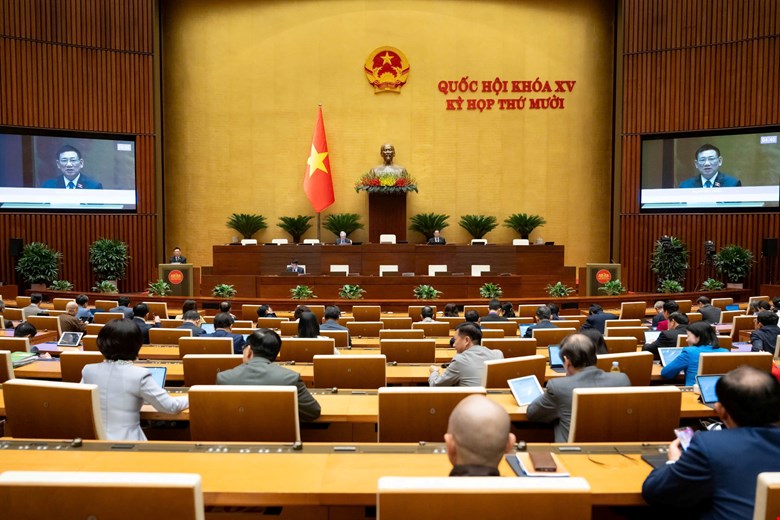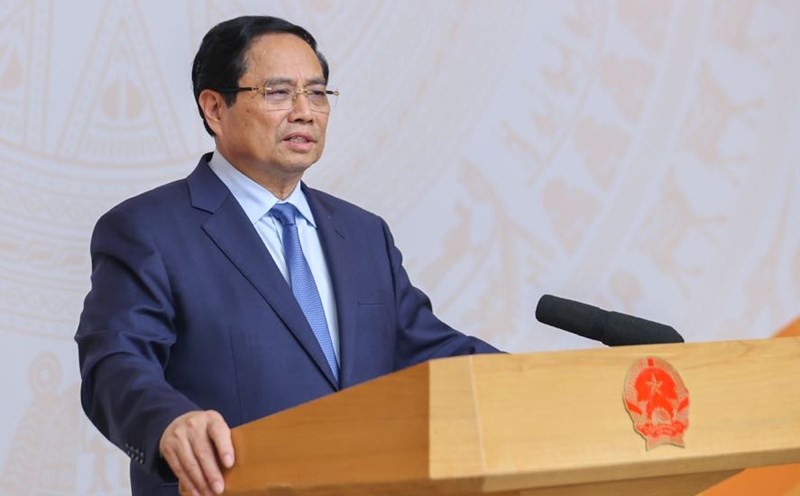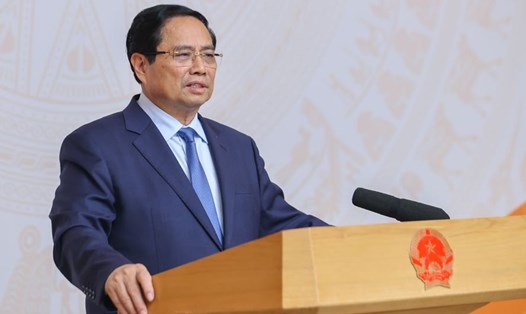On the morning of November 19, at the 10th Session, Deputy Prime Minister Ho Duc Phoc, authorized by the Prime Minister, presented a report on the draft Resolution of the National Assembly on a number of specific mechanisms and policies to improve the effectiveness of international integration (AI).
The draft focuses on 3 major groups of policies.
Firstly, the policy strengthens and deeps relations with partners, especially neighboring countries, major countries, other important partners and traditional friends, continues to promote and elevate multilateral diplomacy, proactively contribute intelligence and resources to peacekeeping, promote international cooperation and development.
Accordingly, creating a legal basis for entities (National Assembly, Government, Supreme People's Court, Supreme People's Procuracy, State Audit, Ministries, branches, local governments) to participate in cooperation mechanisms, multilateral forums, networks of large cities and urban areas to improve proactiveness, ensure security, national defense and efficiency.
Current law does not have specific regulations on the order and procedures for participating in these cooperation mechanisms when participation does not go through the signing of international treaties and international agreements.
Allow provincial People's Committees to establish representative offices abroad in some key areas, in accordance with the requirements of the State budget of local governments.
Second, the policy promotes the central role, subject, driving force and main force of enterprises in the score.
The HNQT Enterprise Development Fund was established to improve global competitiveness and HNQT of domestic enterprises.
It is expected that the Government will study and develop a Decree detailing the organization and operation of the Fund as well as the management and supervision mechanism to ensure the Fund operates for the right purposes and complies with the law.

Third, the policy of promoting training, improving the quality and quantity of cadres working in foreign affairs and foreign affairs at both the central and local levels.
Solutions to increase human resources to serve the Ministry of National Defense include: mechanisms to mobilize retired civil servants, public employees, and armed forces officers; regimes to send seconded officers of ministries and branches to localities to carry out key tasks on the Ministry of National Defense.
Appointed the titles of "Special Envoy", " mobility for the entire Ambassador Extraordinary and Plenipotentiary" in a number of areas of foreign affairs and HNQT of strategic importance and as Head of the Delegation, Advisor to the Government negotiation Team.
The draft stipulates the regime and policies for the force working abroad and in the foreign service sector regularly, accordingly being supported with 100% of the salary according to the current coefficient;
Regime and policies for people working abroad and in the private sector who are not regular in training, fostering, and creating appropriate working conditions... according to Government regulations;
Regulate the regime and policies for experts, scientists, and users who are fluent in rare foreign languages ( Arabian, Persian, Bahasa, Lao, Khmer, Portuguese, etc.) to serve foreign affairs work, accordingly, there is a training and professional development regime and are entitled to 300% of their salary according to the salary coefficient.
Regime and policies for civil servants and public employees seconded or participating in work at international organizations, accordingly, there are forms of encouragement, priority for consideration, consideration and application of the regime of members of representative agencies in the area or equivalent.











